Fall is the perfect time of year to collect pinecones. Most of them have fallen from the trees making it easy to collect them.
When it comes to debugging the pinecones, I never wash them. If it is damp or the ground is wet, the pinecones will close up. Similarly, once they are placed in water, they will close. The bugs will stay inside until the cones open again.
I wash them only if they are dirty.
All of the collected pinecones are placed on a foil-lined or parchment-lined baking sheet and put in a 200-degree oven for approximately two hours. Two hours are usually enough, but they can stay in longer if necessary.
I don't believe any bug can live beyond a good baking.
I open the oven from time to time to check on them. As the cones start to open, I stand them upright so that they bake more evenly.
Some cones will not open or only partially open. I can't explain why that happens. If it does happen that some don't open remember that pinecones make good mulch in the garden.
The green pinecone opened. It has a slightly lighter colour than the others.
Different trees produce differently shaped cones.
The cone at the top left was one I found on a trip to the Caribbean. The tree appeared to be some sort of pine tree, but when I brought the cone home and checked to find out what it was, it turned out not to be a pine tree at all. It is a Casuarina tree.
I will still be using these small and unusual cones in my seasonal decorating, though.
Spruce trees, cedar trees, as well as different varieties of pine trees produce cones. They are worth checking out.
In another post, I will be talking about my method for frosting pinecones and ways to incorporate them into your seasonal decor.
Thank you for stopping by.
This is an original Fair Meadow Place Publication.
We are Linking with.....
Foodie Friday & Everything Else
You're the Star
Metamorphosis Monday
The Scoop
Celebrate Your Story
Thursday Favorite Things
Pink Saturday
Winter Holiday Link Party
Tuesdays With a Twist
Wow Us Wednesdays
Share Your Style
You're the Star
Metamorphosis Monday
The Scoop
Celebrate Your Story
Thursday Favorite Things
Pink Saturday
Winter Holiday Link Party
Tuesdays With a Twist
Wow Us Wednesdays
Share Your Style
The best way to see our posts is by email subscription. SUBSCRIBE HERE

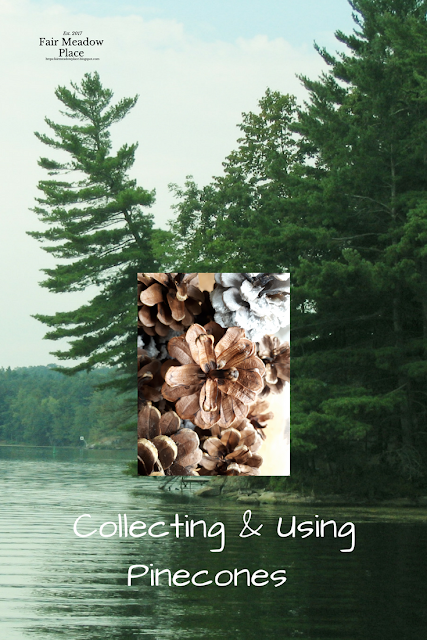
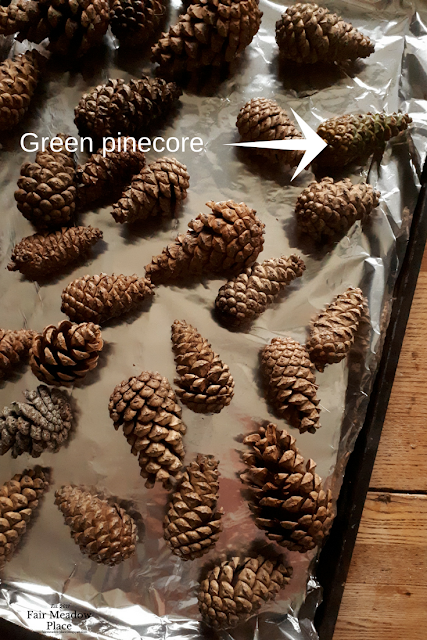
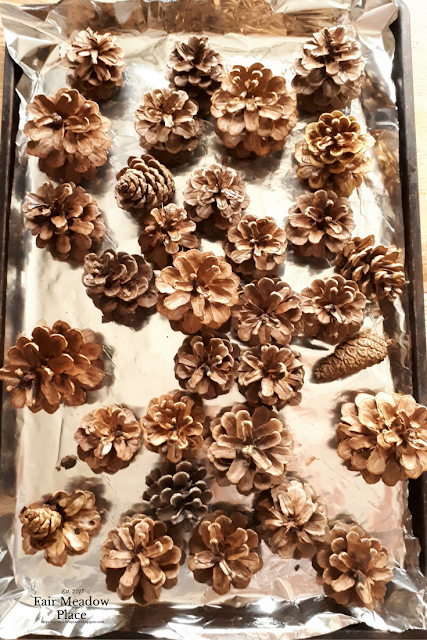


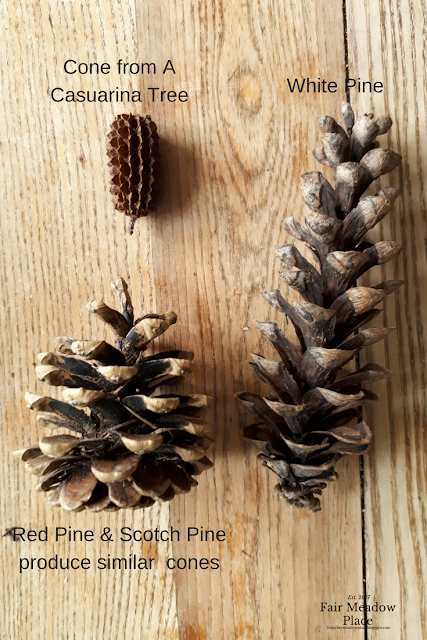

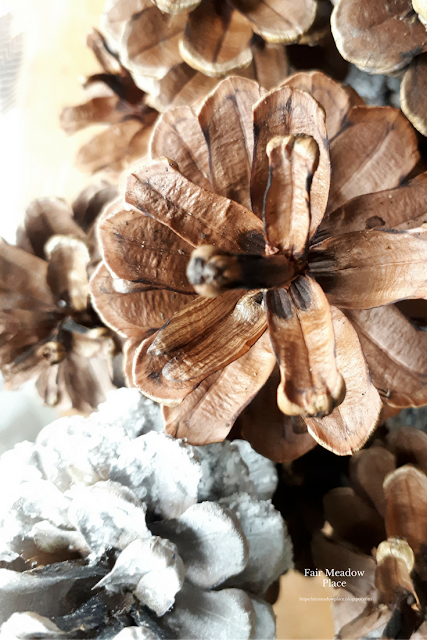
I've missed you -- I'm so glad you are back on blog and hope you had a lovely holiday. Thanks for the baking instructions and the tip on washing. So, the ones that don't open? Do they still have bugs? Or would they be dead inside, because I think some of those would add a visual interest because they DIDN'T open! I love the natural look of using pine cones. Tis very nearly the season.
ReplyDeleteHi Jeanie. I've missed you too. Honestly, I have never seen a bug on a pinecone. I know that some people worry about bringing bugs into the house when they bring in a piece of nature. I don't think a bug, if there was one, would survive the baking. I am looking forward to decorating for Christmas.
DeleteThanks so much for the terrific information on 'baking' the cones - I had no idea that was done! Your completed cones are just lovely.
ReplyDeleteI arrived via Beverly's Pink Saturday Blog Hop - but I'll be back!
Thanks again for sharing!
Thank you, Tristan, and welcome. Pinecones are like little barometers. When they are wet, they close. When dry, they open. I am glad you stopped by.
DeleteBarbara pine cones are such a great way to add warmth and texture to your home decor. I found some recently and they had resin in them. This is actually the first time I found them like that. I guess heating them should help with that too, what do you think?
ReplyDeleteMary, I am not sure whether heating them will stop the flow of sap or not. It has been my experience that when there is sap on the pinecones they just remain sticky. You can still use them, but, be careful how you use them so that you don't get sap on tablecloths, etc.
DeleteThis wonderful post is a GARDEN feature on the December You're the STAR blog hop: http://www.godsgrowinggarden.com/2017/11/youre-star-week1-garden-december-2017.html
ReplyDeleteThanks
Angie